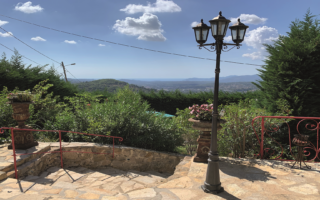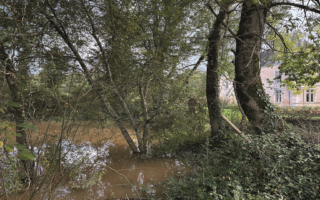The Living France guide to… Sport and exercise in France
Getting involved in sport is a great way to integrate when you make the move. Kate McNally looks at the French attitude to keeping fit and the popular sports across the Channel
Although Great Britain and Germany came ahead of their European rivals in the 2012 Olympic Games medal haul, the French put on a good performance this summer highlighting the country’s commitment to sport and sporting achievement.
It was also a fitting endorsement of the country’s Code du Sport, implemented by the government in 2004 to improve the nation’s physical and mental well-being by encouraging and financially assisting more people to take up a sporting activity, particularly the young and disadvantaged.
While the popular image of the French is enjoying a cigarette and espresso on a caf� terrace, our friends across the Channel have, in fact, had a long love affair with outdoor pursuits that extend way beyond the revered yellow jersey.
POPULAR OUTDOOR ACTIVITIES
Probably the most practised ‘sport’ in France is la randonn�e. French people love walking, discovering their beautiful countryside and taking pleasure in foraging for whatever is the fare of the season whether mushrooms, blackberries or wild garlic. There are numerous walking clubs in France organising weekly outings for all fitness levels, as well as countless informal rambles shared ad hoc among friends.
Cycling, of course, is part of the French make-up and wherever you go you are likely to find a local cycling club. Road cycling is the most popular – complete with brightly coloured Lycra gear and smurf hats – and drivers are noticeably more courteous to cyclists on the roads than their UK counterparts, giving them a good metre in width when overtaking. Mountain biking (or VTT, v�lo tout terrain, as it is known in France) is a perennial favourite too, especially in more wild terrain, and it was perhaps no surprise that a French woman took gold in this Olympic event in August.
Another popular outdoor pursuit, particularly for youngsters, is canoeing and kayaking. The French make the most of the numerous rivers criss-crossing their land, which provide excellent opportunities for ‘pushing the boat out’, for thrill-seekers and professionals as well as more sedate family outings. Again, the young Olympians came away with a handful of medals from the fast-flowing waters in Milton Keynes.
Also high up in the ranking for French sporty types are tennis and horse-riding. The country has long punched above its weight in the professional tennis arena – Tsonga, Monfils and Gasquet are now leading the way – and the grass roots of the game remain healthy with almost everyone in France having access to a tennis court, even in rural areas. Horse-riding is arguably more elitist with costs for lessons and outings, though cheaper than in the UK, still higher than the average household purse can afford. But for those who can, what better way to enjoy the French landscape than on horseback?
Invariably, the local terrain dictates which sports are prevalent in certain areas, for example climbing and skiing in the mountainous areas, sailing and surfing next to the sea. The school curriculum requires a certain number of hours of sport per week, and generally at least one term will include an outdoor activity linked to the local area. And, of course, these sports play a crucial part in France’s tourist trade, attracting millions each year from near and far to the slopes, the rivers, the sea and the walking paths.
POPULAR TEAM SPORTS IN FRANCE
Top of the list has to be handball. For a long time now handball is one of the principal team sports on offer in schools, while the professional arena just keeps achieving and achieving. The men’s national team are the current world champions and Olympic gold medal holders.
Equally popular with both sexes, handball provides a rare opportunity for women to play a team sport in a country where hockey and netball clubs are few and far between.
In contrast, there are numerous local football and rugby clubs, and increasingly, at least at junior level, the clubs are making an effort to open their doors to girls. As in the UK, women’s football in particular is slowly but surely starting to win over the naysayers, although there is less accessibility to these sports in school for girls, which is likely to hinder progress. Needless to say, as across the world, these two sports remain among the favourites when it comes to watching or attending professional matches, with rugby proving more popular than football in the rugby heartland of western France.
Other team sports enjoyed by the French include basketball (Tony Parker is a national hero), volleyball and water polo, which can of course be played indoors or outdoors throughout the year. No respected summer camp in France would leave these activities off the holiday agenda for example.
And we shouldn’t forget ice hockey, which has a much higher profile in France than its grass equivalent. Indeed, should you venture out with a grass hockey stick, be prepared for endless raised eyebrows and numerous comments about your strangely shaped appendage!
On the whole, however, the French are more into solo sports. Swimming, judo, gymnastics and fencing are among the top choices for French youngsters, with many progressing to a higher level representing clubs in regional and national events. Interestingly, the French education system had implemented a sporting option in the baccalaur�at examinations, enabling talented young sportsmen and women to devote more time to sporting pursuits as an integral part of their studies with performance counting towards final results.
GOING TO THE GYM
The French haven’t taken to the communal sweating fest that is the modern gym phenomenon in the same way as many other nations. The number of regular gym-goers is less than half than in the UK. Given the better climate and greater space in much of France, it’s probably not surprising that its people have always preferred outdoor forms of exercise.
Still, most towns and cities have a number of gyms to choose from, both private and municipal, but there are fewer of the large-scale glitzy gyms with all the frills of spa, pool and restaurant that have flourished in the UK. This is probably because, in France, the gym is more about exercising than socialising, though of course there will be plenty of furtive flirting going on across the bike machines!
Most gyms offer the standard fare of gym equipment, various aerobics classes including the latest Zumba workouts, and showering facilities. It is worth checking out the nearest municipal gym first as the majority are government subsidised and can therefore offer reasonable and more flexible subscription rates. In smaller towns and villages, it is often a local association that runs assorted gym and exercise classes using local sports facilities and hiring professionals. Clearly this type of set-up is more rigid in terms of when and where, unlike a gym that operates longer hours and is open most days of the week.
Before signing on the dotted subscription line, check out the terms and agreements for the minimum/maximum duration and how much notice is required should you wish to cancel. Also, can you pay in instalments (and if so, is there an additional cost?) or do you have to pay everything up front. In France, it is always worth checking the opening hours too – for example, it may not automatically stay open at lunchtime which is when many people in the UK snatch an hour’s exercise. LF
Share to: Facebook Twitter LinkedIn Email


